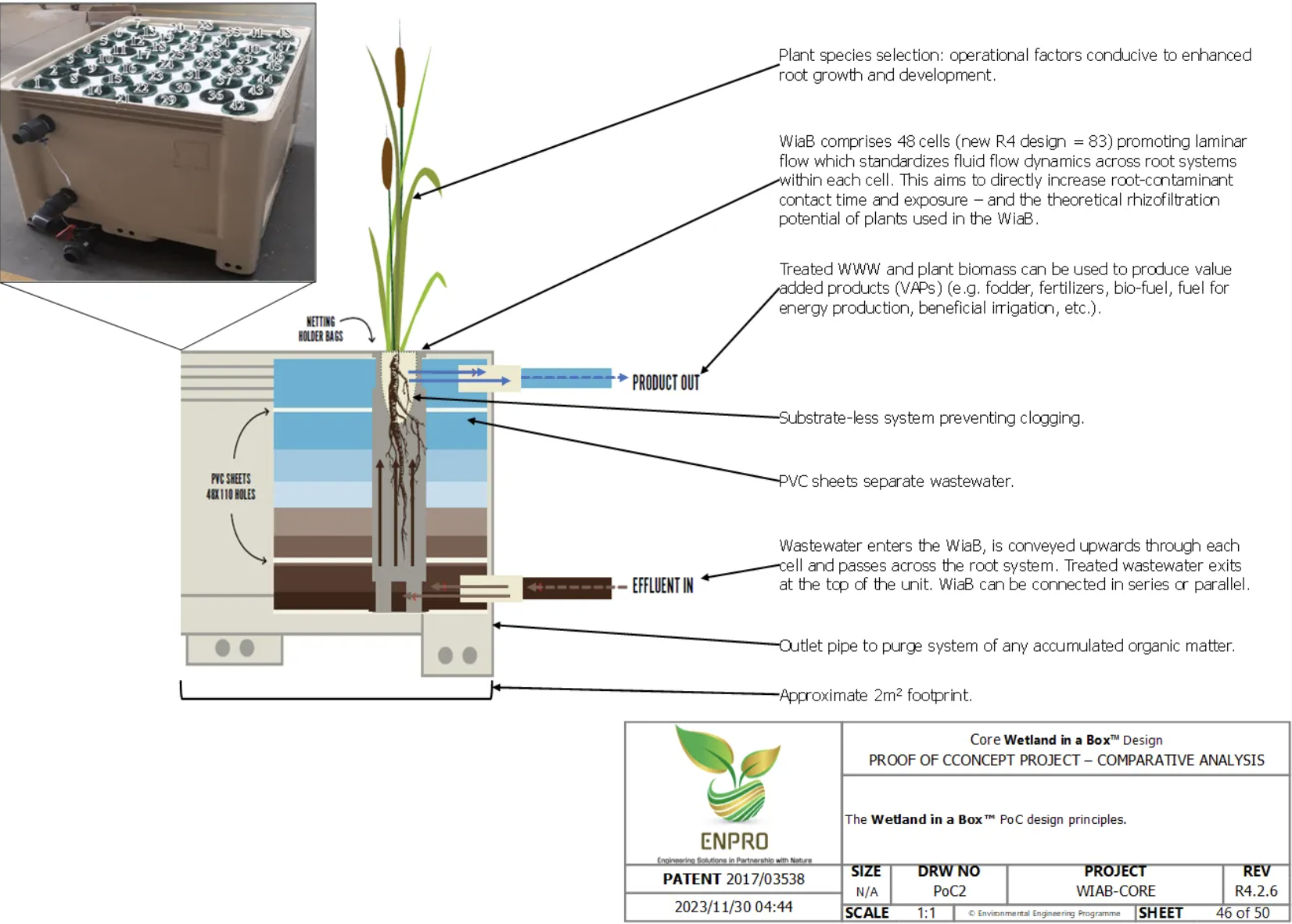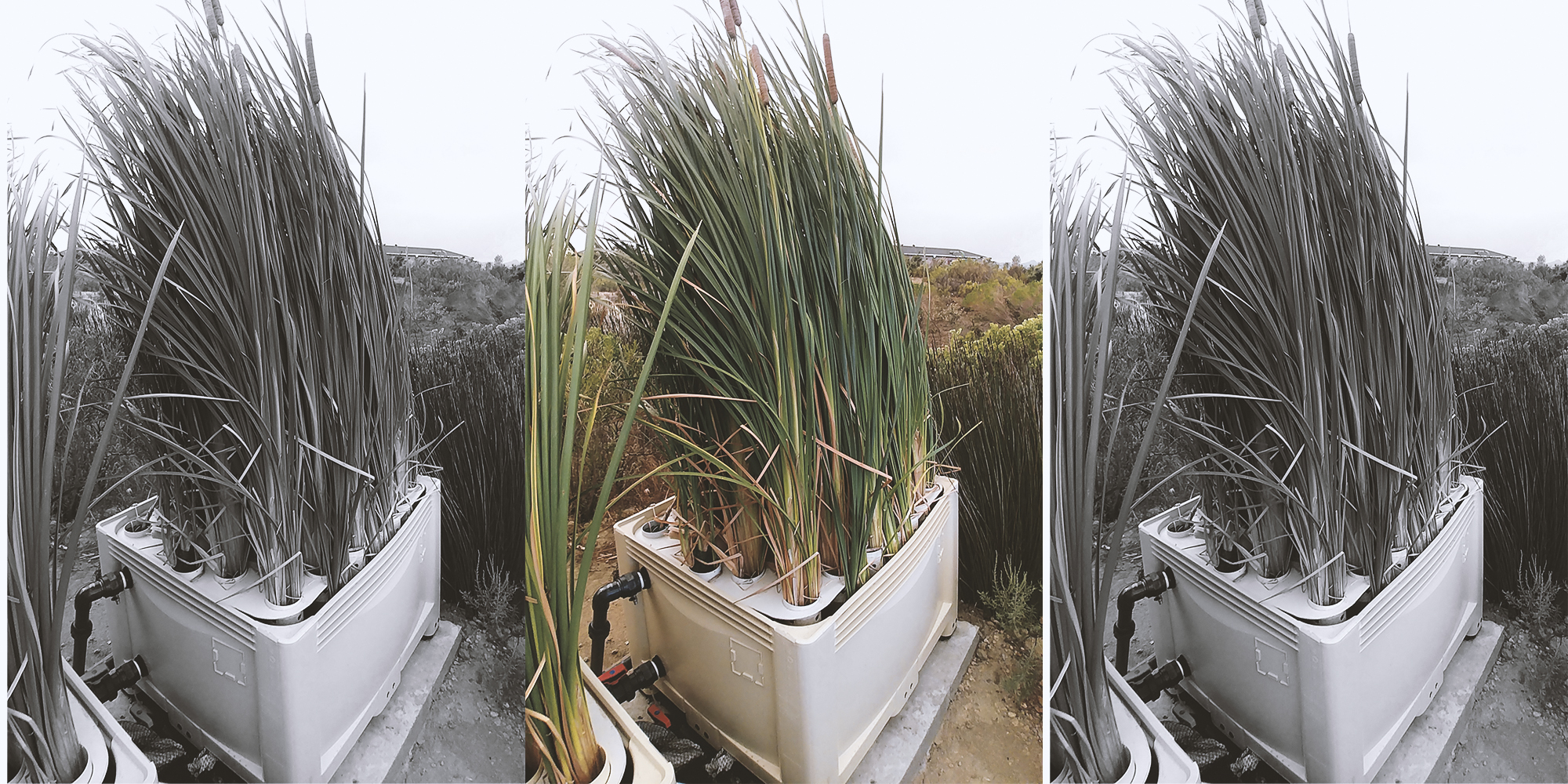Gerhard Janse van Rensburg, a former information and communication technology specialist, became involved in community service in 2018. Initially focusing on electricity issues, by 2021 he had shifted focus to a topic many consider to be South Africa’s next crisis: Water.
“While electricity is absolutely a basic service, you can live without electricity. Without water, no one can survive,” he said.
Following a presentation to Water and Sanitation Minister Senzo Mchunu and his team on modular constructed wetlands as an alternative to wastewater treatment, Janse van Rensburg was invited to attend a water summit, which led to him meeting Professor Anthony Turton.
A scientist and implementer come together
Turton, a water resource management specialist at the University of the Free State, invented a modular, vertical upflow water treatment system called Wetland in a Box, which won the silver award at the 2023 Eco-Logic Awards.
Patented in 2014, the Wetland in a Box offers a holistic solution to addressing the water treatment problems plaguing the country. Plant roots and the bacteria that grow on them filter and clean wastewater. The system also harvests biomass for multipurpose products such as fuel, fertiliser, food and energy.
“I could never implement it because I am not an implementing person. So when I met Gerhard, I had no hesitation making him responsible for implementation because he is a very enthusiastic and capable guy,” said Turton.
We can control the system from an engineering design perspective to get the maximum efficiency in the smallest footprint and at the lowest cost.
When Turton introduced the system to Janse van Rensburg, he “immediately fell in love with it”. Since 2021, the pair has been working in collaboration on the Wetland in a Box.
Janse van Rensburg found great joy getting his hands dirty during an installation of the Wetland in a Box in Klipheuwel, Western Cape, in 2023. “I loved it from beginning to end,” he said.
Working with nature
The technology is based on water always circulating. “The amount of water we have on the planet today is the same that we had when dinosaurs roamed free, and so the water you drank this morning went through a dinosaur’s kidney 63 million years ago and you didn’t even know that,” said Turton.
The reason people are unaware of this is because of a simple process that occurs naturally through wetlands. With their diverse plant and animal populations, wetlands act as natural filtering systems, removing sediment, nutrients, pollutants and sewage from water, as seen in India’s East Calcutta Wetlands. “The city of Calcutta had no centralised sewage management system and all the sewage was going into the river,” said Turton.
Solving problems
Turton said that although wetlands do for free the things we normally have to pay a significant amount of money to do, all of them have one fundamental problem.
“That problem is what is known as a preferential flow path, where water will always eventually find a certain pathway through the wetland,” he said. “That means that all the plants in the wetland can no longer do what they need to do.”
In a complex wetland, the different velocities of water flow result in depositions of material in some of the lower-velocity places, and the erosion of the material in some of the high-velocity places.

According to Turton, the technology he created has solved this problem.
“I can guarantee with my technology that the water will flow over all the roots of all the plants in equal measure across the entire system,” he said.
A normal wetland would need to be about 10 times larger than the Wetland in a Box, but because Turton and Janse van Rensburg can guarantee that the water will flow over the roots of every single plant, it is highly efficient and can be compact.
“We can control the system from an engineering design perspective to get the maximum efficiency in the smallest footprint and at the lowest cost,” he said. “It’s a green technology that is solar powered because the leaves of the plants provide the energy, and the bacteria that live on the roots actually do the work.”
Think of Lego
To understand how the modular system works, Turton compared it to Lego blocks.
“You can make Lego blocks into some of the most complex structures you can imagine. By adding the Lego blocks together, you can clip them together in whatever configuration – you scale it up infinitely from very small to very big,” he said.
A franchise model is what we believe will give local communities an awful lot of job opportunities.
This means the system can be used as an architectural feature in a garden site for grey water, as a wastewater treatment plant unit for a municipality, or for an industrial application.
It is also possible to select bacteria for specific applications, such as the uranium contamination in rivers from the Witwatersrand gold fields.
Plans to empower communities
“Wherever we deploy this in a local area, my focus will be to set up a nonprofit organisation that will mine... talent in that community, and I will transfer skills to them to assist with the implementation,” said Janse van Rensburg.
Read more in Daily Maverick: Wetlands — critical ecosystems to keep migrating birds soaring — are under global threat
The pair also has a build-own-operate-transfer model that will be used when they work with public services. “A franchise model is what we believe will give local communities an awful lot of job opportunities,” he said.
A facility in Vanderbijlpark is in the pipeline that will function as the main nursery and allow for specific targeted biota cultivation. Turton said the technology could be empowering in the hands of communities because it is relatively simple and its components can be manufactured locally. DM
This story first appeared in our weekly Daily Maverick 168 newspaper, which is available countrywide for R29.






